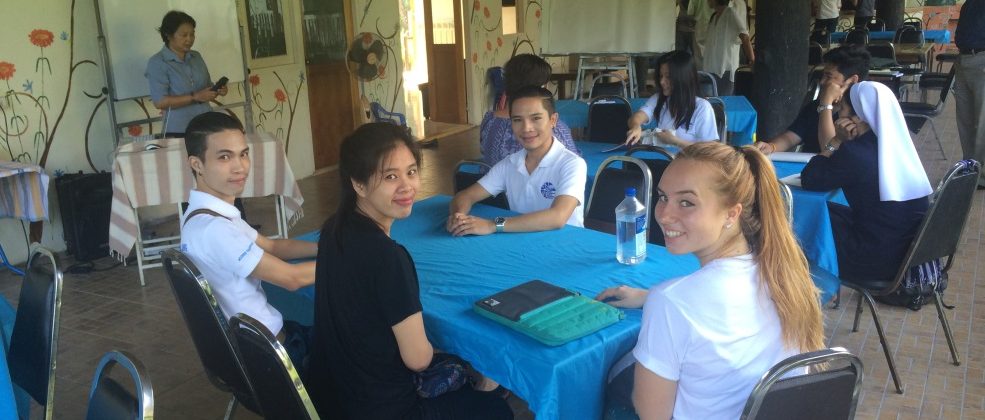From 5 – 8 October, 2016, a number of full time and intern team members from the BABSEACLE Thailand office attended a workshop, hosted by BABSEACLE’s long term partner, The Wildflower Home. The workshop was called “Leadership: Creating the future we want”. The Wildflower Home is a non-profit Catholic Church foundation that provides safe shelter to single mothers and their children, who come from crisis situations, such as domestic and other abuse and dire poverty. The Sisters provide educational and emotional support, in order to help young mothers move from crisis and poverty to steady jobs, or to continue their education, after leaving the Home… thus becoming self-sufficient for themselves and their families. BABSEACLE and BABSEACLE Foundation have provided legal empowerment trainings to the women and Wildflower Team members for many years.
What was the purpose of the workshop?
The purpose of the workshop was to coach and provide advice on how to effectively lead a team, particularly within non-governmental organizations. The workshop modules were both diverse, relevant and incredibly helpful. They included:
- Transformational leadership
- Effective communication
- Performance management and feedback
- Empowering others with engagement
- Brainstorming as a tool to generate ideas
- Six step problem solving
- Finance, budget and sustainability
- Vision, mission, values
- Fundraising
The entire workshop was expertly facilitated by Peter Scontrino and Mizuki Asano.
What did we learn from the workshop?
Due to the diversity of workshop topics our team members learned many new things, or had the opportunity to strengthen areas of knowledge and expertise they already had. This included different methods of fundraising- e.g., contacting organizations about workshops, the key of patience, the appeal of fundraising, as a means of advertising, and the purpose for case statement, as a means to educate and move someone to give support. In addition to fundraising, we learned how communication plays a vital role in the successful leadership of an organization.
During the workshop, we participated in active coaching communication, by which there are three roles: the speaker; the listener; and the observer. From an observer’s perspective, it was fascinating to read body language and to identify the many factors that are involved in a conversation, no matter what the topic of conversation is. Other take-aways from this activity were the consequences of a language barrier. That is, by using the same native language, between two participants, the conversation becomes much more colloquial and comfortable, for each of them. Language is often the driving force behind the actions and the level of interaction, between speaker and listener. Communication can also be subdivided into the acrostic SQUIRM: Show that you are paying attention; Ask Questions to facilitate, clarify and understand; Let the other person know what you heard; Be Interested in what they are saying; Respond with feedback, as appropriate; and Maintain the other person’s self-esteem.
Below are some of the photos of what we did during the workshop. There were 3 activities per day. For example, there were brainstorming, changing the knowledge in each topic and role play.
By Georgia Moody, Santichai Mamoon, Juthamart Auychai_Interns of BABSEACLE



